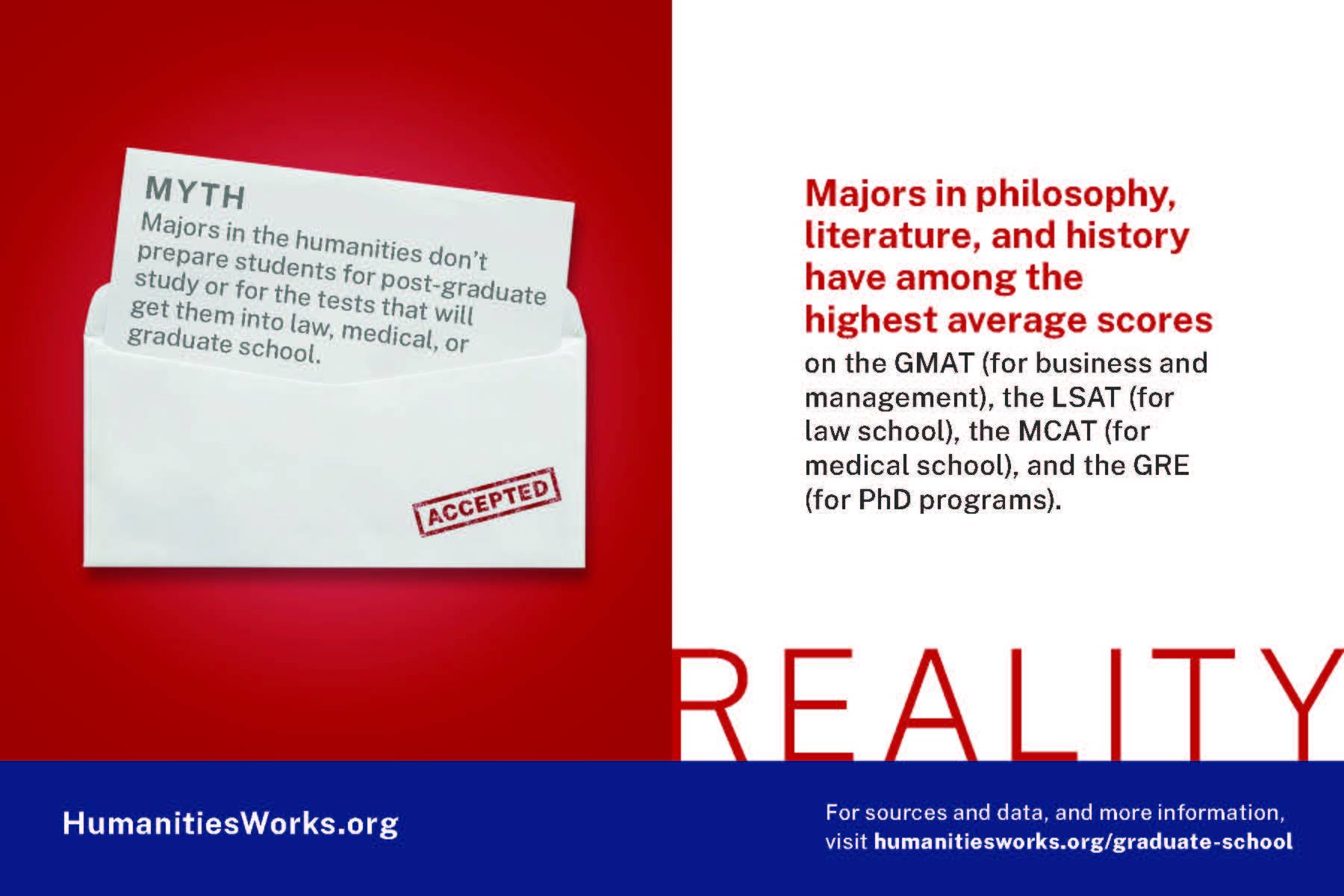Careers
Career Center
The GVSU Career Center is an excellent resource with a wealth of information to help guide you on finding a job after graduation.
Be sure to visit the English Career Guide page for more information about internship experiences, where English graduates have found jobs, graduate school and more.

Work Like a Laker Podcast
From the GVSU Career Center, a new season of the Work Like a Laker podcast is here! The first episode is all about internships: Internships: The Basics
Join Megan Riksen and Grace Pushman as they discuss how to land an internship and how internships are beneficial to navigating career planning. They interview GVSU alumna, Caylie Peet, who shares her experience completing seven internships and gives students advice on what to take away from these opportunities. Tune in for some trivia and learn how valuable internships can be.
You can listen to the podcast and subscribe to receive newly released episodes by searching for “Work Like a Laker” wherever you get your podcasts. We highly recommend subscribing so that you’ll receive all new episodes automatically!
Be sure to check out other episodes you might have missed:
First Job Not Dream Job
How to Ace a Behavioral-Based Interview
What Really Happens After I Submit My Resume Online?
Avoid the Awkward: How to Introduce Yourself
Personal Statements: How to Pop Off the Paper
Do’s and Don’ts When Starting a Job
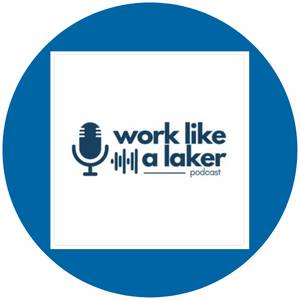
Internships
Internship Opportunities
Black Lawrence Press is currently offering an Editorial Internship Opportunity for their upcoming Poetry Anthology. This is an unpaid internship, but can be completed remotely on a flexible schedule.
For more information or to apply, visit the Black Lawrence Press website here.
*-*-*-*

Students After Graduation
- $62,170 is the median yearly pay for a writer or author in the U.S. (U.S. Dept. of Labor, Bureau of Labor Statistics)
- 8% projected growth for employment of writers and authors with a bachelor’s degree. (U.S. Dept. of Labor, Bureau of Labor Statistics)
- With a bachelor’s degree in English from GVSU, there are career opportunities in a variety of fields including education, publishing, law, social work, library and information science, business, government, public relations and many more.
See what GVSU English alumni are doing now by visiting our Alumni Success Stories page.

Alumni House on the Allendale Campus
What Can You Do With an English Major?
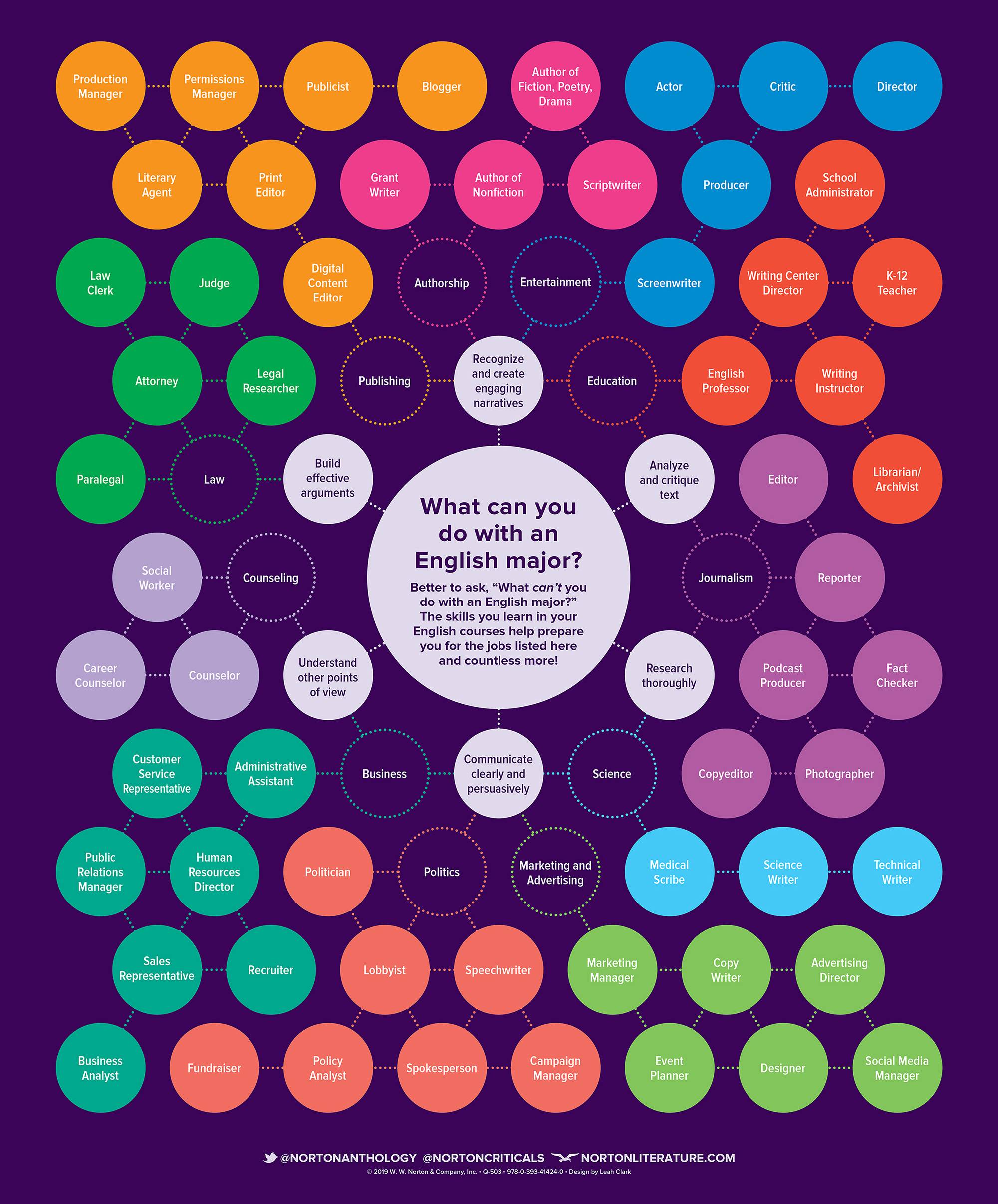
Myths v. Realities in the Humanities
MYTH: Humanities majors earn lower salaries and find less rewarding work than majors in STEM fields.
REALITY: Graduates with humanities majors earn comparable median salaries ($53,000 for English majors, for example) to those majoring in biology ($56,000), environmental science ($56,000), and psychology ($49,000). By age 40, liberal arts degree holders actually surpass STEM degree holders in average annual salary.
Source: Humanities Works
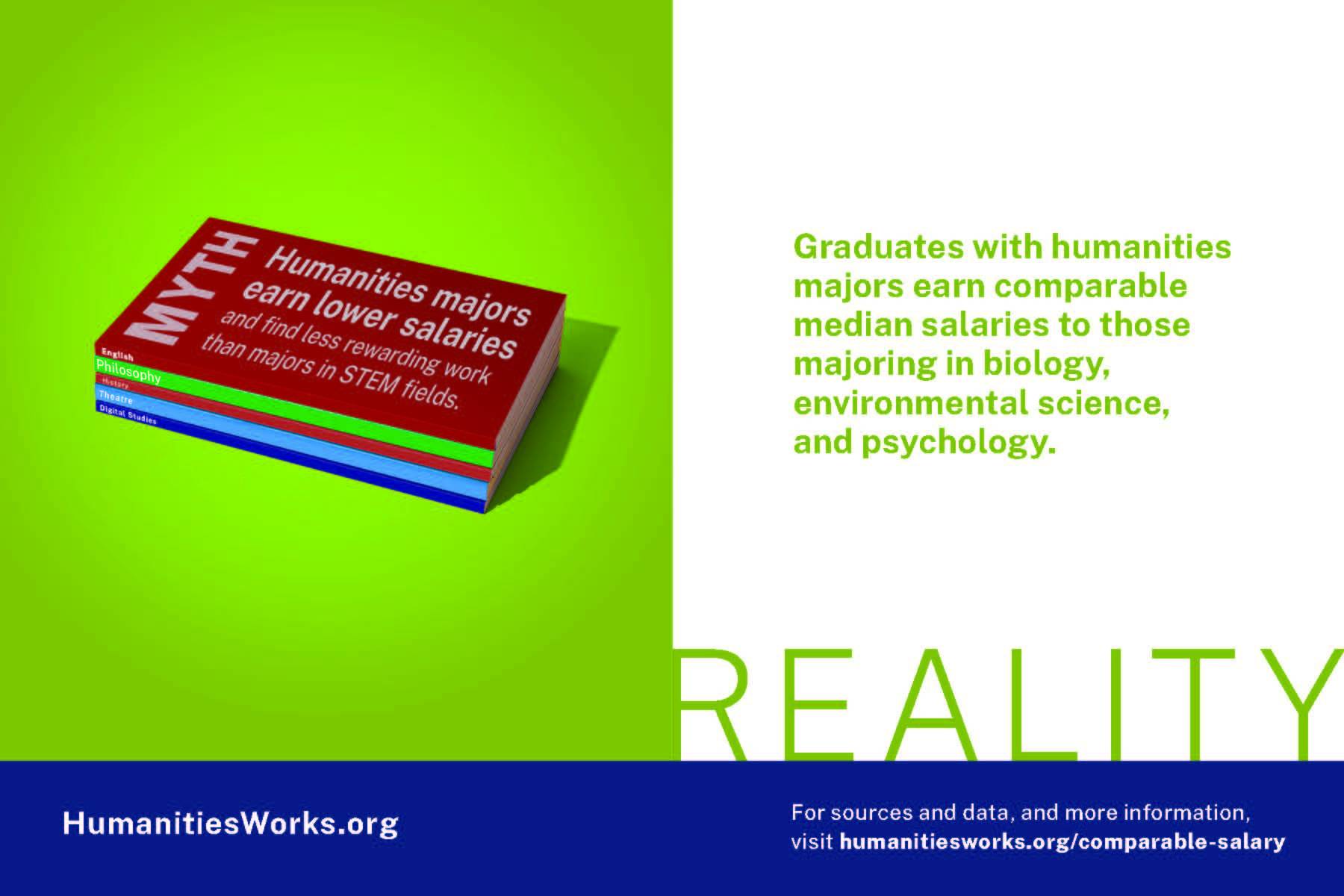
MYTH: Employers don't care about the liberal arts skills of critical thinking, writing, emotional intelligence, or cognitive flexibility.
REALITY: A World Economic Forum survey of top executives from nine leading industries listed these and other humanistic skills as the top skills they are looking for in employees. And a Forbes magazine article writes that "today's tech wave will inspire a new style of work in which tech takes care of routine tasks so that people can concentrate on what mortals do best: generating creative ideas and actions in a data-rich world."
Source: Humanities Works
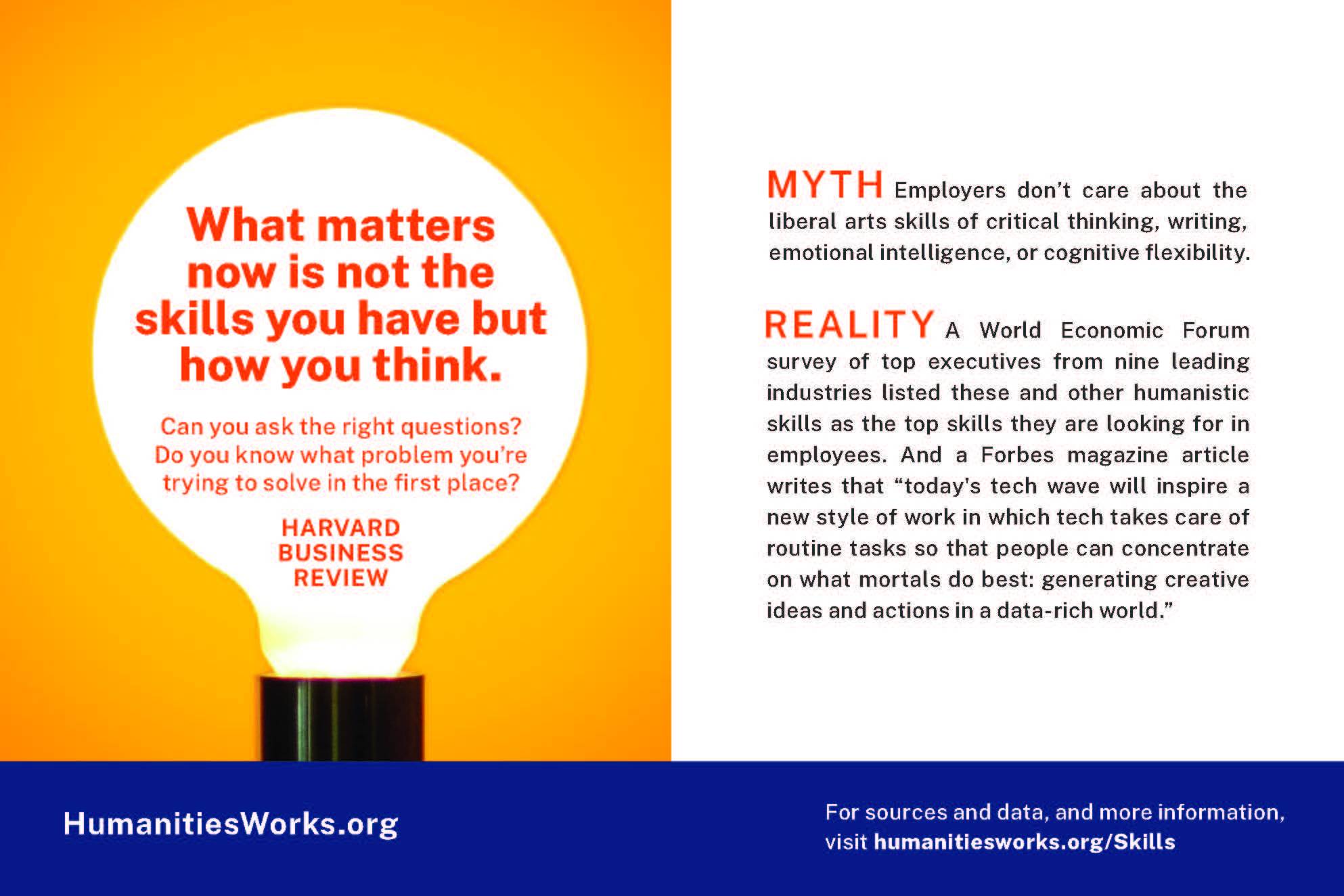
MYTH: The reason humanities majors have low unemployment is because they’re desperate for work and will take anything they can get.
REALITY: Economists have ways of measuring this phenomenon, which they call “underemployment,” or having a job in which you’re employed less than full-time or in which you’re not really using your skills and education.
English majors (45%) and foreign language majors (43%) have a lower probability of being underemployed in their first job out of college than those who majored in biology (51%), psychology (54%), or business (47%).
Source: Humanities Works
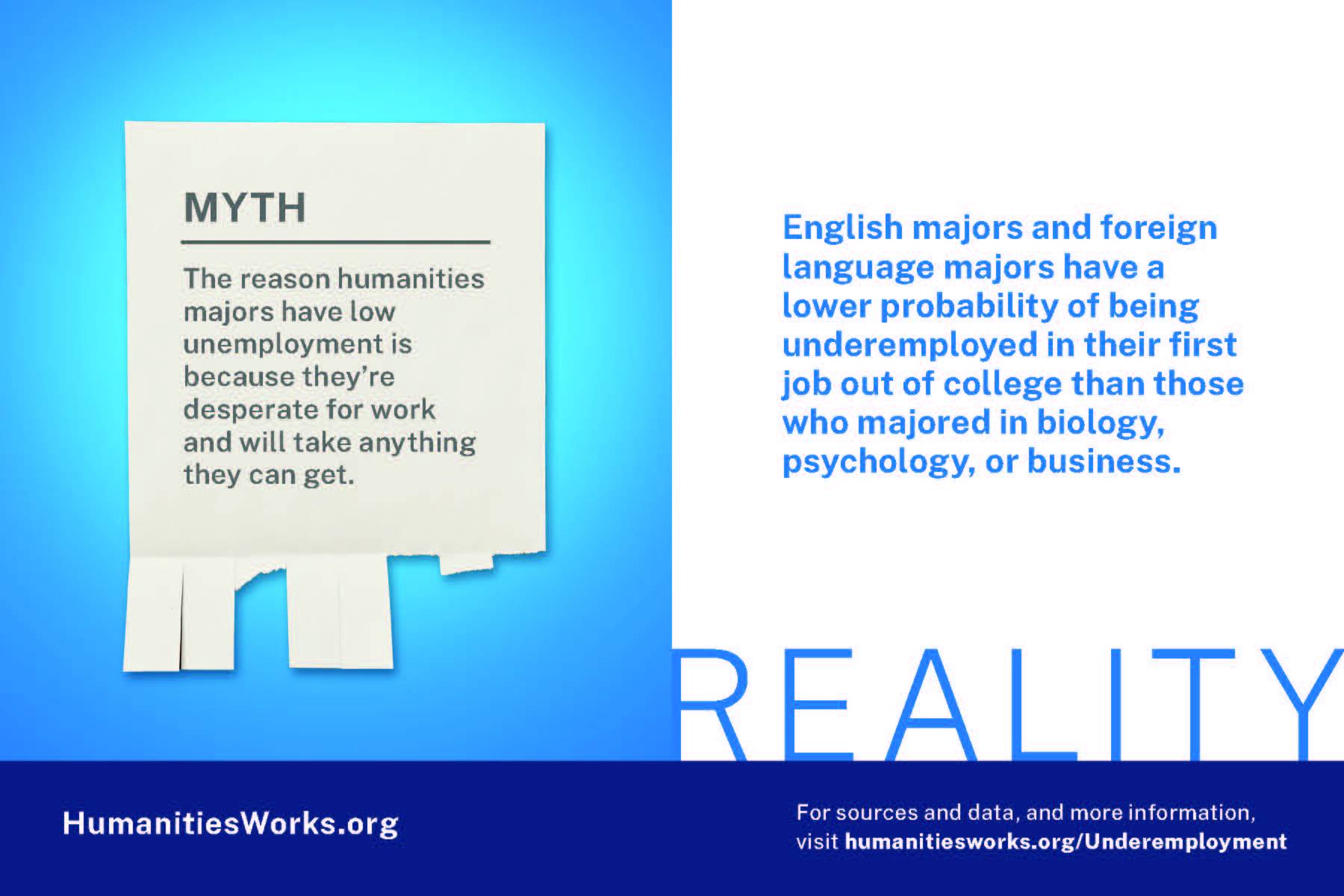
MYTH: Humanities majors struggle to find jobs.
REALITY: When it comes to getting a job, humanities majors experience rates of unemployment (3.6% for History, 3.7% for languages and literatures) similar to those of business majors (3.7%), physics majors (3.4%), or criminal justice majors (3.8%).
Source: Humanities Works
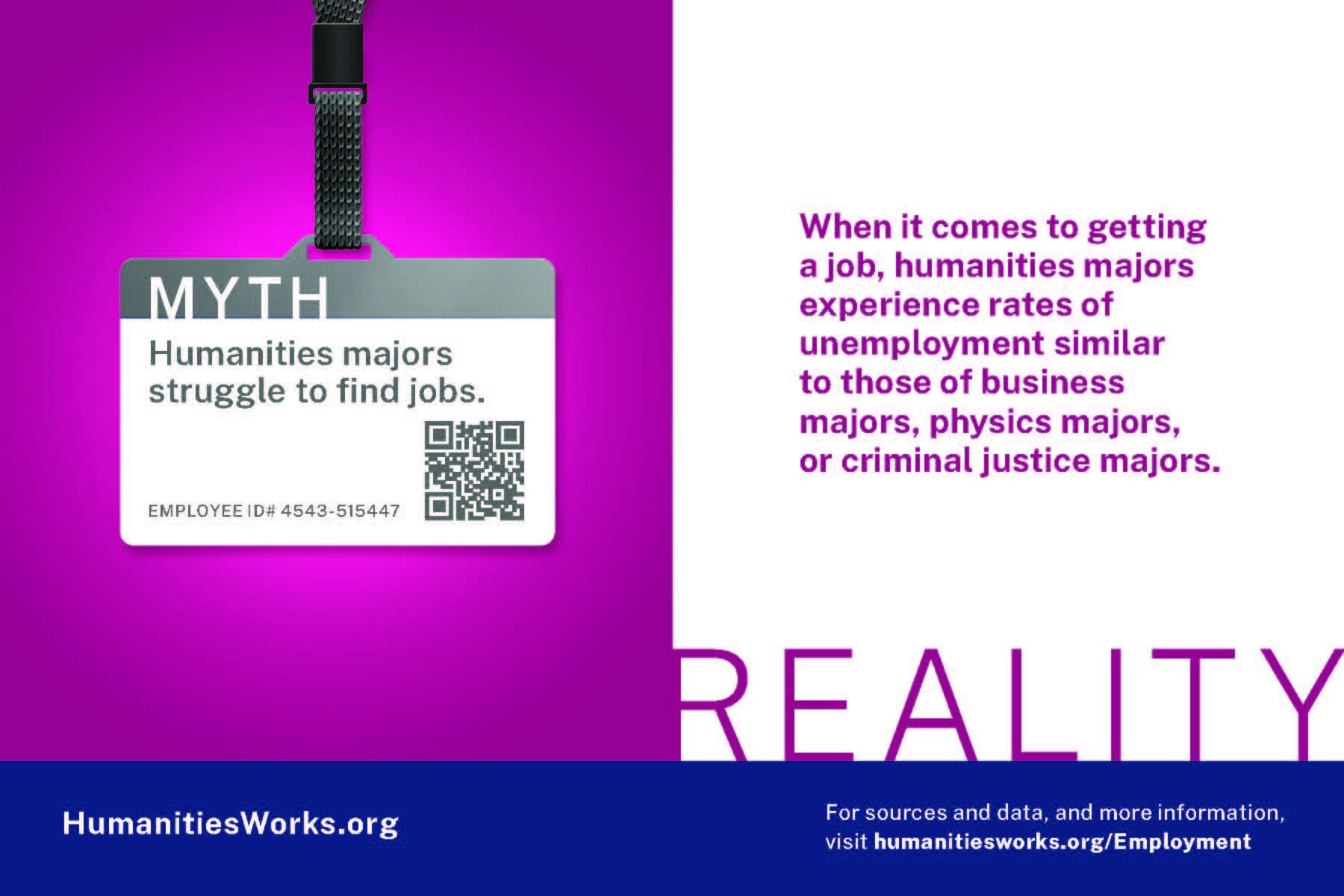
Myth: Majors in the humanities don’t prepare students for post-graduate study or for the tests that will get them into law, medical, or graduate school.
Reality: Majors in philosophy, literature, and history have among the highest average scores on the GMAT (for business and management), the LSAT (for law school), the MCAT (for medical school), and the GRE (for PhD programs).
Source: Humanities Works
